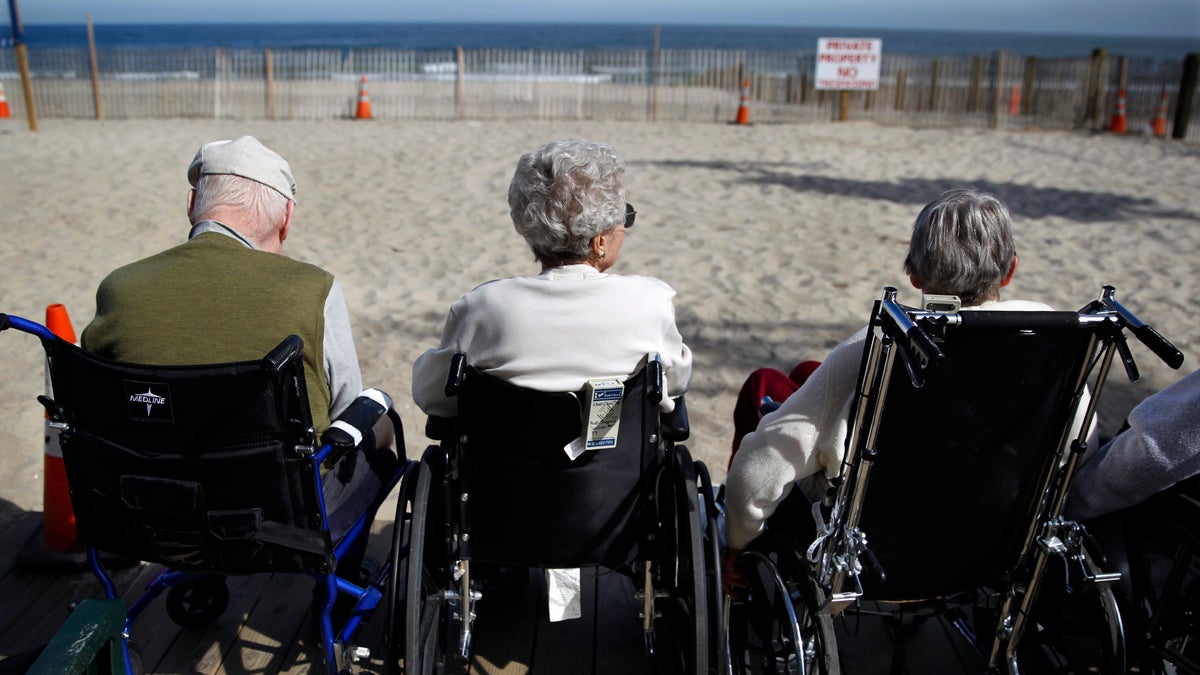New Jersey deploys tax changes for elderly and veterans in 2017

Elderly people from a nearby senior citizen facility sit on the edge of the boardwalk and look out over the ocean on the first day of autumn Tuesday
The legislation that raised New Jersey’s gas tax 23 cents in November also includes some tax cuts that have taken effect with the ringing in of 2017.
The amount of retirement income excluded from New Jersey’s income tax has doubled to $40,000, with an increase to $100,000 by 2020.
That will make a difference for many people, said Bernard Kiely, a certified financial planner and public accountant in Morristown.
“For most people who are retired, they’re living on Social Security, which New Jersey does not tax, and they’re living on either pensions or IRA distributions,” he said. “So, a whole lot of retirees will no longer pay New Jersey income tax.”
The exemption from the state’s estate tax increases to $2 million and will be completely eliminated in 2018.
And the 7 percent state sales tax rate decreases to 6.875 percent.
Most people probably won’t notice that, Kiely said, adding that the phase-out of the estate tax and the retirement income exclusion change are a big deal.
“It means people will no longer have an incentive to leave the state of New Jersey when they retire,” he said.
Eleanore Szymanski, a certified financial planner in Princeton, said the estate tax phase-out won’t be the deciding factor on whether people leave the state.
“We still have one of the highest real estate taxes and we do have the income tax. So, I think people are wary of New Jersey anyway,” she said.
The change in the estate tax does mean that some of her clients won’t have to do as much estate planning, she added.
“Heretofore we’ve had to protect married couples with a credit sheltered trust embedded in their wills or outside of their wills,” she said. “To create one of those is a couple thousand bucks, so that’s a big savings for them if they don’t have to do that.”
The legislation also gives an income tax break to veterans and increases a tax credit for low-income workers.
WHYY is your source for fact-based, in-depth journalism and information. As a nonprofit organization, we rely on financial support from readers like you. Please give today.




